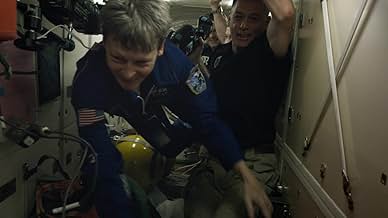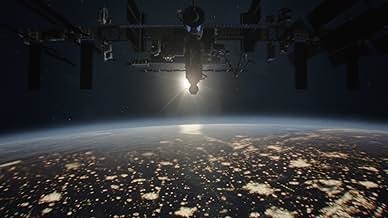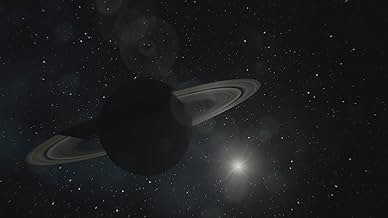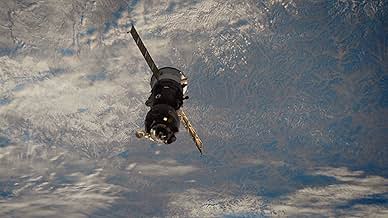PUNTUACIÓN EN IMDb
8,7/10
8,5 mil
TU PUNTUACIÓN
La extraordinaria historia de la Tierra y porqué es especial desde la perspectiva singular de varios astronautas.La extraordinaria historia de la Tierra y porqué es especial desde la perspectiva singular de varios astronautas.La extraordinaria historia de la Tierra y porqué es especial desde la perspectiva singular de varios astronautas.
- Premios
- 1 premio y 3 nominaciones en total
Explorar episodios
Reseñas destacadas
As an Earth Science teacher in an urban school district I was very happy with my students engagement in the first episode of this series. Although just one episode I would rank this with the best episodes of cosmos, planet earth, and blue planet for student interest and behavior. I personally enjoyed it as well. Some of the photography is stunning and unlike what you will see in "Blue Oceans" and "Planet Earth" (not necessarily better but refreshingly different). Will Smith by no means makes the show but I don't think he takes anything away from it either, and he can be amusing at times. The Astronauts are going to be the real stars of the show, and they have come across great so far.
10jbdecker
Vivid and thought provoking. Photography and visuals are stunning. Fascinating perspectives from astronauts. Planet Earth on steroids!
Oh if only more TV was this quality! Well shot, well produced, execellent narrative, meaningful. Every bit as good as Blue Planet. For every age 3-103. Thank you to all who labored to bring us this incredible program. I hope it is long lived.
Executive produced by Darren Aronofsky, and made by Will Smith's production company (Smith is also the presenter), One Strange Rock is essentially about the experiences of eight astronauts, and how their time in space led them to see Earth with new eyes. That, in turn, is used as a jumping off point to examine several different branches of Earth Science, with each episode focusing on a specific astronaut and dealing with a specific topic; the planet's respiratory system, the Theia Impact theory, how the planet protects us from the sun, the origin of life, the Permian-Triassic Extinction, the possibility of colonising another planet, how life has both transformed the Earth and been transformed by it, the evolution from single celled microbes to complex organisms, the development of the human brain, and the concept of Earth as home.
Along the way, the show throws up a litany of hard to believe facts. To give just a sampling; the Amazon produces twenty times more oxygen than all of humanity could use, but none of it leaves the Amazon Basin, as it is used by the animals living there; the magnetic field generated by the planet's core stretches for 400,000 miles into space in every direction; every strand of DNA in the world contains billions of carbon atoms to bind it together; the human body has 37 trillion cells (more than the stars in the galaxy); tropical islands are composed of up to 70% parrot fish excrement; photosynthesis generates 100 terrawatts of energy per year, six times more than humanity could use; the human brain is the most complex object in the known universe; 95% of all animals that have ever existed are extinct. Easily my favourite take from the show, however, is that it's 250,000 miles to the moon, 700 million miles to Saturn, 9 trillion miles to the edge of the solar system, 24 trillion miles to the nearest star (with our current technology, it would take 17,000 years to get there), and 25,000 light years (150,000 trillion miles) to the edge of the galaxy. That's a whole lotta miles!
Very enjoyable stuff. My one complaint would be that most of the episodes feel a little padded, with each one containing two or three diversionary stories only tangentially related to the core theme. But it's still well worth watching; terrific visuals, great sound, experts who know what they're talking about, and mind blowing information, if the goal was to make the viewer look at Earth in a new manner, they certainly succeeded with me.
Along the way, the show throws up a litany of hard to believe facts. To give just a sampling; the Amazon produces twenty times more oxygen than all of humanity could use, but none of it leaves the Amazon Basin, as it is used by the animals living there; the magnetic field generated by the planet's core stretches for 400,000 miles into space in every direction; every strand of DNA in the world contains billions of carbon atoms to bind it together; the human body has 37 trillion cells (more than the stars in the galaxy); tropical islands are composed of up to 70% parrot fish excrement; photosynthesis generates 100 terrawatts of energy per year, six times more than humanity could use; the human brain is the most complex object in the known universe; 95% of all animals that have ever existed are extinct. Easily my favourite take from the show, however, is that it's 250,000 miles to the moon, 700 million miles to Saturn, 9 trillion miles to the edge of the solar system, 24 trillion miles to the nearest star (with our current technology, it would take 17,000 years to get there), and 25,000 light years (150,000 trillion miles) to the edge of the galaxy. That's a whole lotta miles!
Very enjoyable stuff. My one complaint would be that most of the episodes feel a little padded, with each one containing two or three diversionary stories only tangentially related to the core theme. But it's still well worth watching; terrific visuals, great sound, experts who know what they're talking about, and mind blowing information, if the goal was to make the viewer look at Earth in a new manner, they certainly succeeded with me.
I don't do reviews much apart from ratings but this one got me down to write one just to say that it doesn't deserve a miss. Never seen a documentary this visually stunning and thrilling before. Just witness it.
¿Sabías que...?
- CuriosidadesThe documentary was released on Netflix.
Selecciones populares
Inicia sesión para calificar y añadir a tu lista para recibir recomendaciones personalizadas
- How many seasons does One Strange Rock have?Con tecnología de Alexa
Detalles
- Duración47 minutos
- Color
Contribuir a esta página
Sugerir un cambio o añadir el contenido que falta

Principal laguna de datos
What is the Japanese language plot outline for Nuestro planeta (2018)?
Responde



































